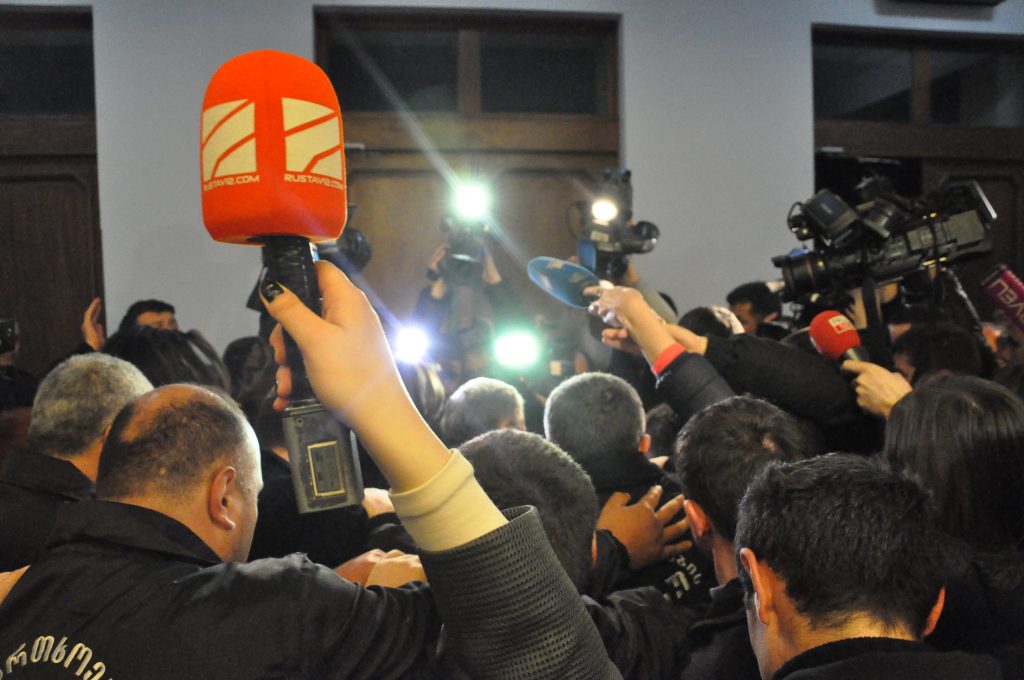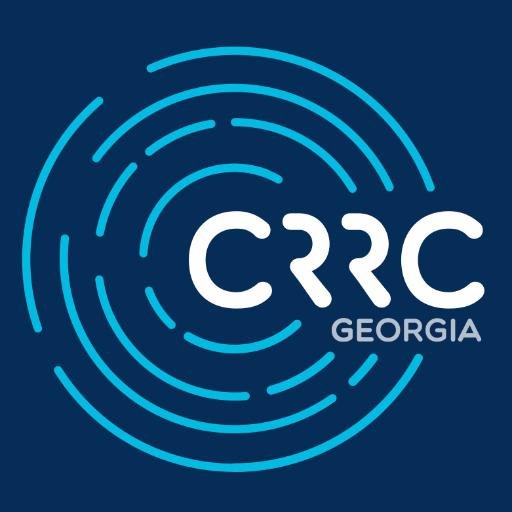


 One of the outcomes of the stark polarisation of news media globally is that people tend to align to the media outlets which resonate most with their ideological beliefs. In most cases, consumption of a particular ideological media source can only reinforce one’s beliefs, which might lead to an even further polarisation of the audience. These patterns can be characteristic of mass media in contexts as different as, for instance, the United States and Lebanon. As the data from the December 2017 CRRC/NDI survey shows, people in Georgia also appear to place more trust in media that aligns with their political beliefs.
One of the outcomes of the stark polarisation of news media globally is that people tend to align to the media outlets which resonate most with their ideological beliefs. In most cases, consumption of a particular ideological media source can only reinforce one’s beliefs, which might lead to an even further polarisation of the audience. These patterns can be characteristic of mass media in contexts as different as, for instance, the United States and Lebanon. As the data from the December 2017 CRRC/NDI survey shows, people in Georgia also appear to place more trust in media that aligns with their political beliefs.
The two largest TV networks in Georgia, Imedi TV and Rustavi 2, tend to support different political parties in their coverage of current events. A long-term media monitoring project which was funded by the European Union (EU) and the United Nations Development Programme (UNDP) unveiled that throughout the 2016 parliamentary and the 2017 municipal election campaigns, Imedi allocated more airtime to and provided positive and neutral coverage of the governing Georgian Dream party. The network dedicated less airtime to and had more negative coverage of the opposition United National Movement (UNM). In contrast, Rustavi 2 covered the ruling party negatively, while covering the UNM in neutral or positive tones. The UNM also received more airtime on Rustavi 2.
Unsurprisingly, those who named Georgian Dream as the party closest to their views were more likely to trust Imedi for accurate information on politics and current affairs in Georgia than those who named the UNM on the December 2017 CRRC/NDI survey. At the same time, those who named the UNM as the party closest to their views were more likely to trust Rustavi 2. No specific preference could be seen for those who answered ‘no party’, ‘don’t know’, or refused to answer the question (i.e., non-partisans).
This tendency persists across the population of different settlement types and endures even when controlling for major demographic characteristics, such as gender, age, and ethnicity. Tbilisi residents who reported either of the two political parties as being closest to their views were the most polarised: those identifying themselves with the UNM in the capital had a relatively small probability (27%) of trusting Imedi, while those who identify themselves with Georgian Dream had a comparably low probability of trusting Rustavi 2 (32%).
Note: Points on the chart display predicted probabilities of trusting Imedi or Rustavi 2 by settlement type and party preference, while bars correspond to 95% confidence intervals. For example, the probability for a person who identifies with Georgian Dream and resides in Tbilisi to trust Imedi is about 63%, while the probability for a UNM supporter in Tbilisi to trust this channel is 27%. These probabilities are calculated using logistic regression models. Replication data and corresponding R code can be found here.
Unsurprisingly, those who report any of the two major Georgian political parties to be closest to their views tend to trust the TV network that favorably covers their party. In contrast, the non-partisan population does not systematically differ in trusting either TV network.
David Sichinava is a Senior Policy Analyst at CRRC-Georgia. The views presented in this blog do not represent the views of CRRC-Georgia, the National Democratic Institute, or any affiliated entity.
To have a closer look at CRRC/NDI survey results, visit their Online Data Analysis portal.








